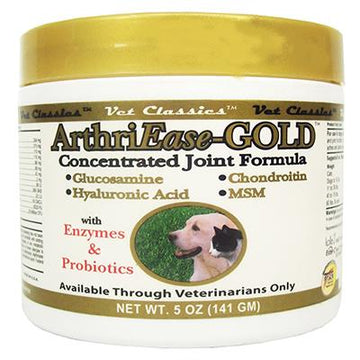Filter by
Longevity Medication For Dogs
Want to help your furry friend live longer? New longevity medication for dogs is making it possible to give your pet more healthy, happy years by your side.
Frequently Asked Questions
What medication helps dogs live longer?
What medication helps dogs live longer?
Different dogs need different medications to support longevity based on their specific health needs. Some dogs might benefit from heart medications to manage cardiovascular conditions, while others may need thyroid supplements, joint supplements, or medications to control chronic conditions like diabetes.
Beyond prescription medications, longevity supplements for dogs can support overall health and potentially expand lifespan when used as part of a comprehensive care plan consisting of proper nutrition, regular vet check-ups, and high-quality dog food.
Does rapamycin extend life in dogs?
Does rapamycin extend life in dogs?
Research into rapamycin as a potential longevity treatment for dogs is showing promising results. The Dog Aging Project (DAP), a major research initiative, is currently conducting clinical trials to study rapamycin’s effects on canine longevity. Early research suggests that rapamycin may improve heart muscle function in dogs in small doses.
The medication appears to help the heart muscle relax more effectively between beats, potentially improving overall cardiac health. While the research is still ongoing, scientists are expanding their trials to include more dogs across the country.
Is there an anti-aging drug for dogs?
Is there an anti-aging drug for dogs?
Researchers are currently studying several promising anti-aging medications for dogs. Rapamycin is one of the most talked-about options. Additionally, Loyal, a canine health company, is making significant progress on longevity drugs specifically designed for dogs. Their drug LOY-002 is a flavored tablet developed for dogs 10 years and older. It targets metabolic dysfunction, which is one of the key mechanisms of aging.
In early 2025, the FDA’s Center for Veterinary Medicine accepted Loyal’s “reasonable expectation of effectiveness” for extending senior dogs’ lifespans. The company is conducting the STAY study, which is the largest veterinary clinical trial in history.
Can dogs live for 20 years?
Can dogs live for 20 years?
While rare, some dogs can live 20 years or more. Factors influencing potential lifespan include genetics, breed, size, diet, exercise, preventive healthcare, and environmental factors. Providing your pet with high-quality nutrition, regular exercise, dental care, and appropriate longevity supplements for dogs gives them the best chance at a longer life.
What is the best way to extend my dog’s lifespan?
What is the best way to extend my dog’s lifespan?
The most effective approach to extending your dog’s lifespan combines several strategies:
- Maintaining healthy weight through diet and exercise
- Providing high-quality dog food appropriate for their life stage
- Ensuring regular vet check-ups for preventive care and early disease detection
- Maintaining dental health with dental chews and regular cleaning
- Using year-round parasite prevention to avoid preventable illnesses
- Keeping your dog mentally and physically active
For many dogs, appropriate longevity supplements may also support healthy aging when used as part of a complete wellness plan.
Learn More About Dog Longevity
Learn More About Dog Longevity
Help your dog live a longer, healthier life with these informative resources
Blog links:

